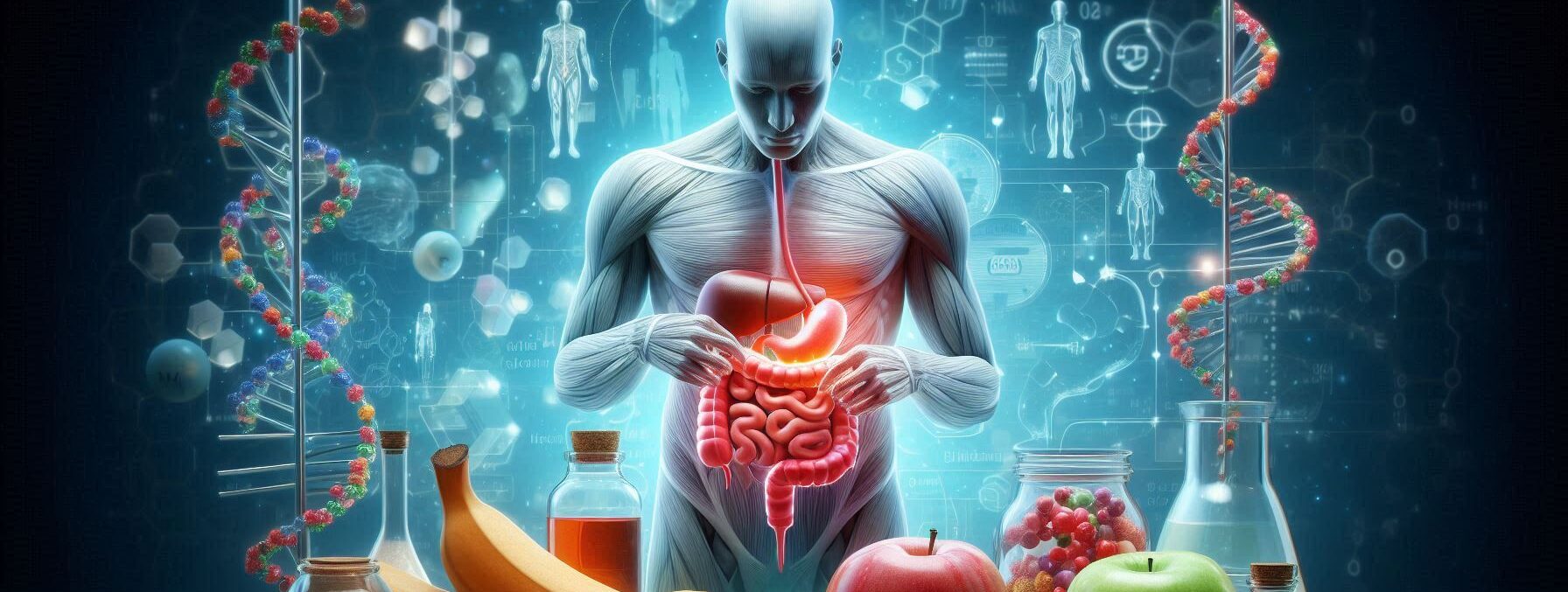Let’s dive into the mysterious world of metabolism! If you’ve ever tried to lose weight, you’ve probably encountered this term more times than you can count—like that one friend who shows up at every party uninvited.
But what exactly is metabolism? And why does it seem like some people can eat cake for breakfast while others just look at a donut and gain five pounds?
Let’s unravel the science behind metabolism in a way that won’t put you to sleep faster than a lecture on quantum physics.
Top Takeaways and Key Concepts
Understand metabolism: It’s your body converting food into energy, including basic functions like breathing.
Recognize influencing factors: Age, muscle mass, and genetics significantly affect metabolic rate.
Fuel wisely: Prioritize protein, stay hydrated, and avoid extreme calorie restriction to boost metabolism.
Exercise strategically: Combine strength training, cardio, and HIIT for long-term calorie burn and afterburn effects.
Monitor hormones: Insulin, cortisol, and thyroid hormones influence metabolism and fat storage.
Summary of This Article
The article explains metabolism as the body’s process of converting food into energy, influenced by age, muscle mass, genetics, diet, exercise, and hormones. It emphasizes protein intake, hydration, and avoiding calorie extremes to maintain an active metabolism. Exercise strategies, especially strength training and HIIT, enhance calorie burning both during and after activity. Hormonal balance also plays a critical role in metabolic efficiency. Ultimately, the article encourages embracing your unique metabolism and tailoring diet and exercise to your lifestyle for sustainable fat loss and overall health.
1. What Is Metabolism Anyway?

First off, let’s clear up what metabolism really means. In simple terms, it’s how your body converts food into energy. Think of it as your body’s very own power plant, turning pizza slices into pure, unadulterated energy (and maybe a little regret).
Interestingly enough, metabolism isn’t just about burning calories when you’re running marathons or doing jumping jacks like an over-caffeinated kangaroo. It also includes the energy used for basic functions like breathing, digesting food, and even sleeping.
Yes, folks! You’re burning calories while snoozing on the couch watching cat videos. So next time someone tells you to “get off the couch,” just remind them you’re working hard at being a professional sleeper!
2. Factors That Influence Metabolism
Now here comes the fun part: understanding what affects our metabolic rate! Spoiler alert: it's not just about how many salads we eat versus chocolate bars (though that helps). Several factors play into it:
– Age: As we age, our metabolism tends to slow down—like molasses in January.
– Muscle Mass: More muscle means higher calorie burn because muscle is metabolically active tissue. So if you're trying to lose weight and only do cardio while avoiding strength training… well, that's like trying to fill a bathtub with the drain open!
– Genetics: Some people are naturally blessed with fast metabolisms—those lucky ducks who can eat whatever they want without consequence.
So by now, you're probably wondering: “Can I trade my current genetics for better ones?” Unfortunately, no amount of wishing will change your DNA—trust me; I've tried!
3. The Role of Diet in Metabolism
Speaking of diets… let’s chat about how what we eat impacts our metabolism! When it comes to fueling your power plant (a.k.a., your body), certain foods can rev things up or slow them down faster than my grandma's old station wagon.
For instance, protein has a higher thermic effect compared to fats and carbs. This fancy phrase basically means that digesting protein requires more energy—so eating chicken breast instead of chips might help boost your calorie burn slightly.
On the other hand, consuming too few calories can send your body into starvation mode where it clings onto every last crumb like it's preparing for an apocalypse!
And don’t forget about hydration! Drinking enough water keeps everything flowing smoothly—not unlike oiling those rusty gears in an old machine.
4. Exercise: The Ultimate Metabolic Booster
Let’s see how exercise fits into this whole metabolism puzzle! Cardio workouts are great for burning calories during activity but incorporating strength training is key if you're aiming for long-term fat loss success.
When you build muscle through lifting weights or resistance exercises (yes, carrying groceries counts!), you're essentially upgrading your body from an economy model to a high-performance sports car!
This means you'll burn more calories even when parked on the couch binge-watching reality TV.
Interestingly enough—and this may blow your mind—high-intensity interval training (HIIT) can create an afterburn effect known as excess post-exercise oxygen consumption (EPOC).
Basically, this means you'll keep torching calories hours after you've finished exercising—who knew sweating profusely could be so rewarding?
5. Hormones and Their Sneaky Role
Now here’s where things get tricky: hormones! They’re like tiny messengers zooming around our bodies influencing various processes—including our metabolic rates.
Insulin plays a significant role in regulating blood sugar levels but also influences fat storage; cortisol—the stress hormone—is notorious for making us hold onto belly fat when we're stressed out (thanks work deadlines!).
Then there are thyroid hormones which regulate overall metabolic speed; if they’re out of whack due to health issues… well then good luck keeping that engine running smoothly!
So yes folks—it turns out we can't ignore these little chemical agents messing with our hard-earned progress simply because they're not visible!
6. Conclusion: Embrace Your Unique Metabolism
At this point in our journey through metabolic science (which hopefully wasn’t as painful as getting a root canal), remember that everyone's metabolism is unique—a bit like snowflakes but less cold and wet!
To achieve sustainable weight loss goals without losing sanity along the way involves finding balance between diet choices alongside enjoyable physical activities tailored specifically toward YOU!
By embracing what works best for YOUR lifestyle rather than chasing unrealistic ideals set by social media influencers—you'll likely find greater success overall… along with some laughs along the way!
Suggested Resources:
The Role of Metabolism in Weight Management
https://www.ncbi.nlm.nih.gov/pmc/articles/PMC5691308/
Understanding Your Body's Metabolism
https://www.healthline.com/nutrition/metabolism-guide
How Muscle Affects Your Metabolism
https://www.webmd.com/diet/features/how-muscle-affects-metabolism
Frequently Asked Questions
What is metabolism?
Metabolism is the process your body uses to convert food into energy. It supports functions like breathing, digestion, and movement throughout the day.
What factors affect metabolic rate?
Age, muscle mass, and genetics are major influences on metabolism. Lifestyle habits such as diet, hydration, and activity level also play important roles.
How does diet impact metabolism?
Protein-rich foods increase calorie burn due to higher digestion energy needs. Eating too few calories slows metabolism, while proper hydration supports efficiency.
Can exercise boost metabolism?
Yes. Strength training builds muscle that burns more calories at rest, while cardio and HIIT increase calorie burn during and after activity.
What role do hormones play in metabolism?
Hormones like insulin, cortisol, and thyroid hormones regulate energy use and fat storage. Imbalances can slow metabolism or affect weight loss.
Is it possible to speed up a naturally slow metabolism?
While genetics can’t be changed, building muscle, eating enough protein, staying hydrated, and being active can help improve metabolic function.
How does understanding metabolism help with weight loss?
Knowing how metabolism works allows you to tailor diet, exercise, and habits for better energy use and sustainable fat loss results.

Kevin Collier is a dedicated health enthusiast and writer for FatFAQ.com, where he shares his expertise on weight loss and maintaining a healthy lifestyle. With a focus on practical tips and evidence-based strategies, Kevin aims to inspire readers to achieve their health goals through informed choices. His engaging articles cover nutrition, exercise, and holistic wellness, providing valuable resources for anyone looking to improve their well-being. Passionate about helping others transform their lives, Kevin advocates for sustainable habits that promote lasting health and vitality.




